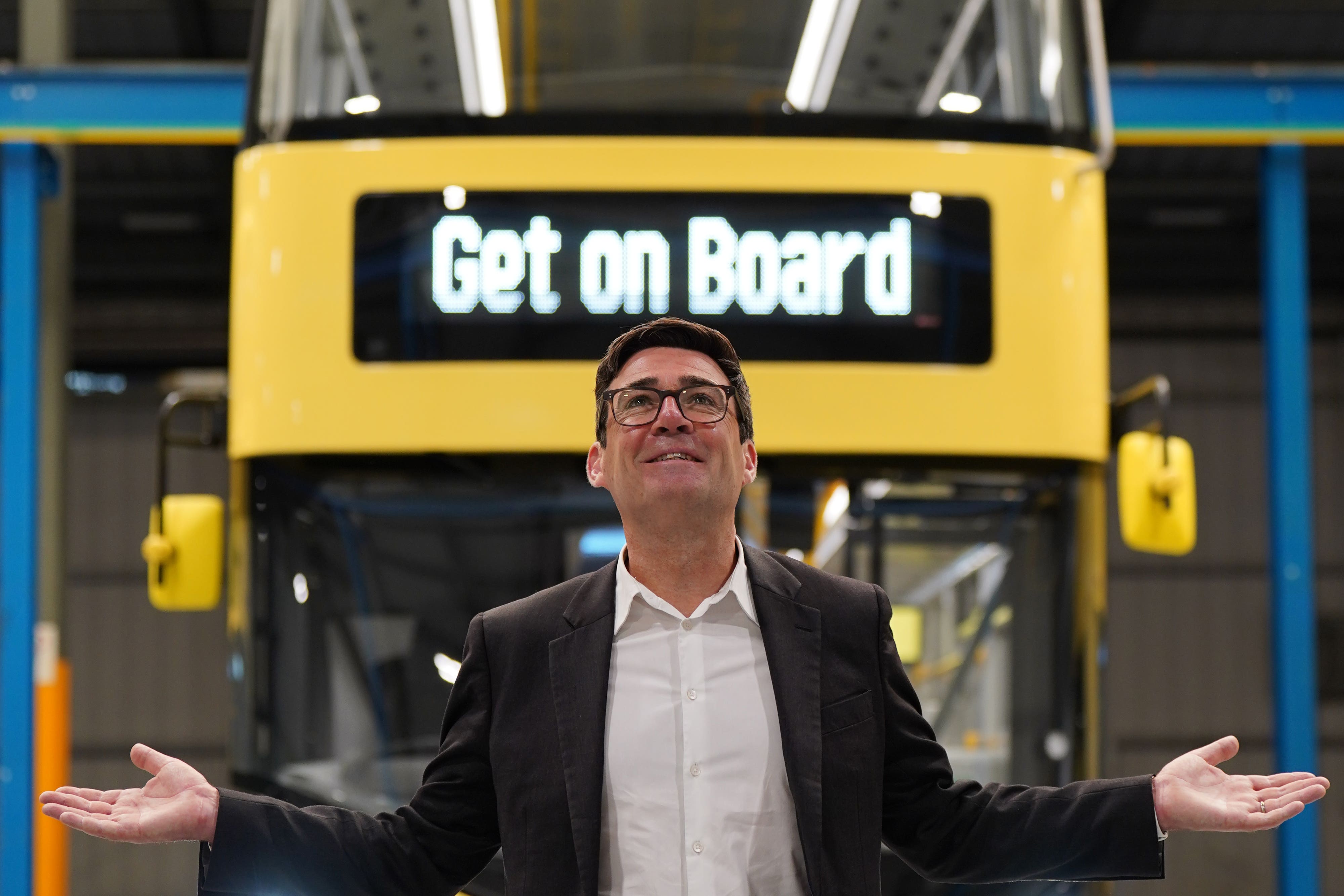Will Labour’s bus reforms prove just the ticket for passengers?
Louise Haigh, the newish transport secretary fresh from passing the bill to nationalise the railways, has outlined three steps to bus heaven. Sean O’Grady checks out the view from the back seat


The government has announced it is to introduce the biggest reforms to the buses in years. More councils will be able to take control, albeit not public ownership, of the way the private bus companies run services and set fares in their areas, on a “franchise” basis. So the buses will still be run by the various private concerns, and remain privatised, but more local authorities will have the right to set much more detailed standards of service, routes and fares, as has become the case on the railways in recent years.
So far, such regulation and “reregulation” of buses has only applied to Greater London and the municipal mayoralties, respectively. Now all councils can follow suit, if they wish. In due course, they may even be able to revive old-style council-owned and run services. Despite decades of decline and neglect, especially virtual extinction in rural areas, buses remain the most used form of public transport, with the number of local bus passenger journeys in England actually rising by 19.4 per cent to 3.4 billion in the year ending March 2023, helped by a £2 cap on fares.
What’s changed?
Once upon a time, from around the 1920s onwards, British local authorities enjoyed a monopoly on regular local and regional bus services. They owned the vehicles, employed the drivers and conductors, built the stops and depots, and things were operated as a public service rather than a business. There was often great civic pride in the way the buses were operated. In 1986, the Thatcher administration privatised and deregulated the buses outside London (too big to gamble with) and kept those in the capital on a “franchise” basis – tightly controlling routes, service levels and fares. Reversing this began under the May administration, and is now to be further reversed.
Last year, Greater Manchester became the first place outside of London to bring bus services into public control since deregulation. The “Bee Network”, where all-night services have been trialled, has been described as broadly a success.
What’s the package of measures?
Louise Haigh, the newish transport secretary fresh from passing the bill to nationalise the railways, has outlined three steps to bus heaven. First, a simple statutory instrument laid before parliament will give county and city councils in England the power to reregulate and take back control of their services (services in Scotland, Wales and Northern Ireland are devolved matters). The private companies will be able to operate a franchise service for a period in return for a fee and closer supervision. So there will still be some profit motive rather than operation as pure service.
Next will come a public consultation redesigning the present franchising regime – how much control and in what areas to be exercised by councils. Third is the cheerfully named Better Buses Bill which “will bring an end to the current postcode lottery by taking steps to improve bus services no matter where you live”. That suggests a “levelling up” for rural routes.
Are there any downsides?
Yes. Depending on how the new franchises are set up, local authorities could fall liable for any shortfall in revenues envisaged in a contract, for whatever reason. They would also, possibly, have to set fares higher than £2 if the national cap is lifted at the end of the year. They would also, politically, suffer if services deteriorate or fail to live up to expectations. How to pay for capital investment and the transition to zero emission vehicles will also be challenges if bus franchise operators are unable or unwilling to do so. And, as with the rail franchises, if things go really wrong, local councils could be faced with having to take services into some form of public ownership or else increase costly subsidies (and thus council tax). Given the crisis in local government finance, having increased responsibility for buses is a mixed blessing.
What does the opposition say?
The last (Conservative) transport secretary, Mark Harper, lost his seat in the general election and has been succeeded on the opposition front bench by Helen Whately. She says that the plans are “unfunded“ and local authorities could be expected to raise tax or cut other services to fund the proposal: “Moreover, it won’t make a blind bit of difference for passengers. It won’t increase the number of services and they would much prefer to have the £2 fare cap extended at the Budget.”
Will Labour make buses great again?
No. The growth of mass motoring after the war was the biggest factor in the decline of the bus, with journeys falling since the mid-1960s. If travelling by private car becomes more costly, some people will turn to public transport and passenger miles might stabilise – though the trend of working from home hasn’t helped matters across public transport. It remains the case that catching the bus still has a bit of a stigma, epitomised in the possibly apocryphal remark of Margaret Thatcher (who never used public transport) that “anybody seen in a bus over the age of 30 has been a failure in life”.
Join our commenting forum
Join thought-provoking conversations, follow other Independent readers and see their replies
Comments
Bookmark popover
Removed from bookmarks